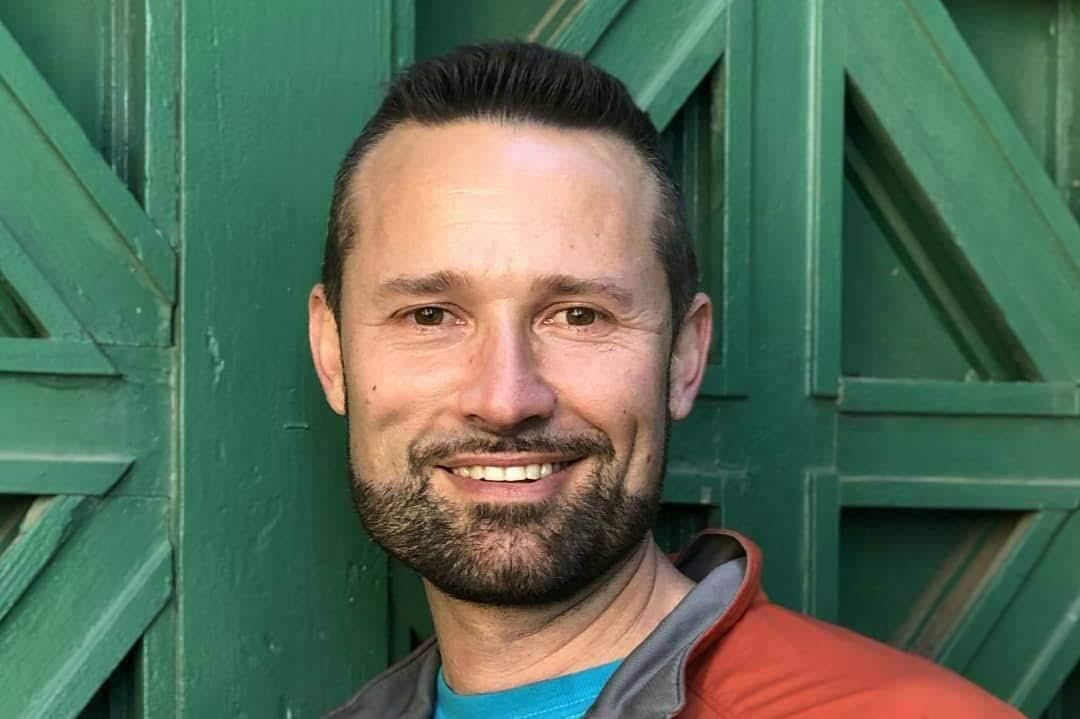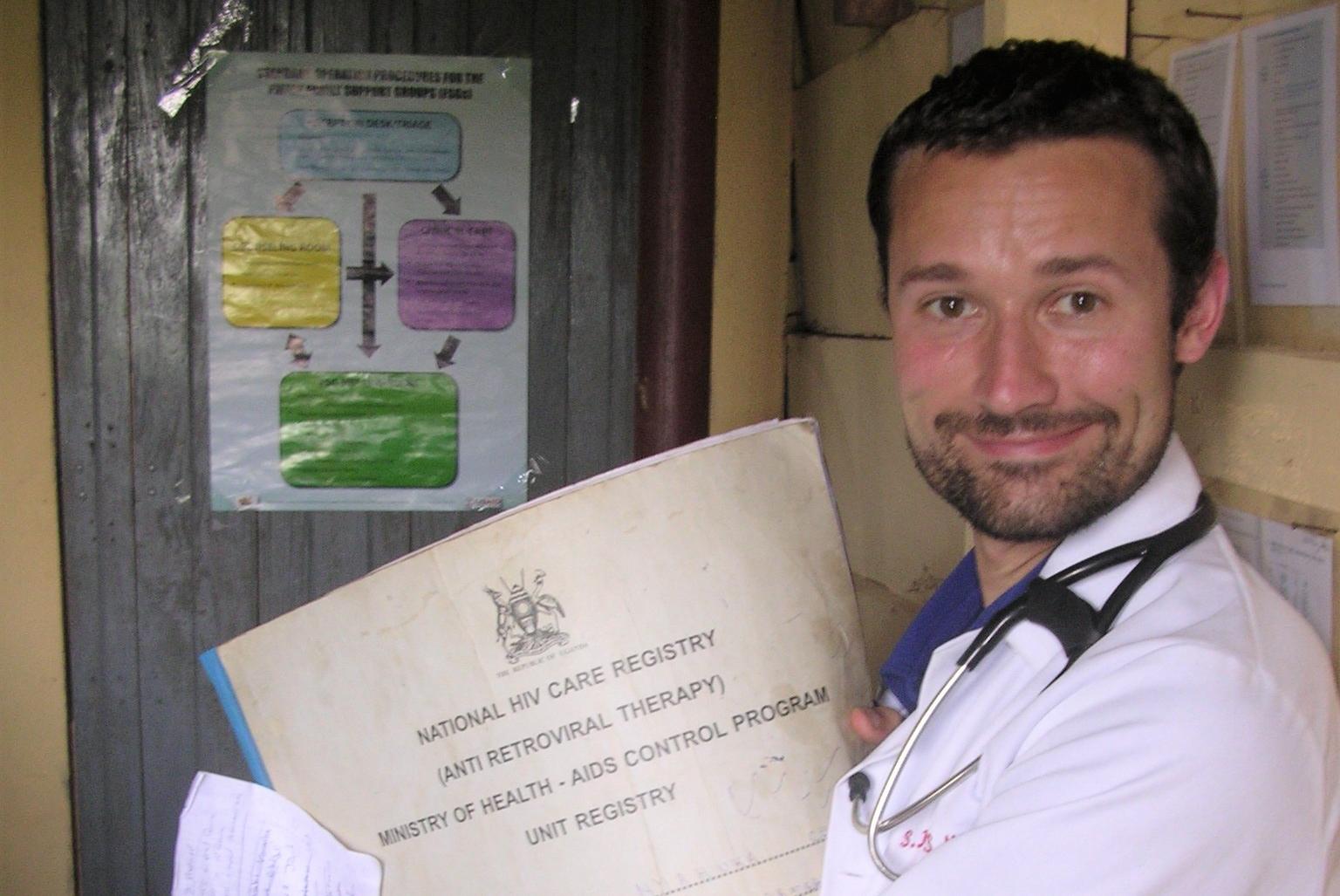Will ’06M, MPH Fights Coronavirus Stateside, Treats Epidemics Around the World

“As a physician assistant, I treat each patient by looking at the whole person in front of me,” explains Scott Will ’06M, MPH about the global perspective and public health training he gained at Arcadia.
Will’s health care journey began more than 15 years ago in Dayton, Ohio. After he received a bachelor’s degree in Biology from Wright State University, he started to plan the next steps toward medical school or a career in teaching. At his job at a local Starbucks, one of the cafe regulars encouraged Will to explore a future as a physician assistant, which led to a fortuitous opportunity to shadow his mentor in a professional health setting. In 2003, he enrolled in the inaugural class of dual degree majors in Public Health and Physician Assistant at Arcadia.
“I put a lot of trust in my training to do things like helping to set up health clinics in remote communities in the U.S. and around the world,” said Will. “Since graduation, the Arcadia community stays in touch and continues to encourage me. Some of my best friends in the world are classmates from the Physician Assistant program.”
Will is putting his training to the test with the unprecedented health crisis caused by COVID-19, the illness caused by a coronavirus first identified in Wuhan, China, in late 2019. Declared a pandemic by the World Health Organization on March 11, COVID-19 continues to spread globally and throughout the U.S., where population density on the coasts has impacted the number of diagnosed cases since February. California has experienced a significant surge, passing 6,000 positive cases and claiming more than 130 lives by the end of March. Will is working as a physician assistant on the front line at two Sacramento-based health care facilities: a family practice office, which treats underserved patients, and an urgent care center, where the number of acute cases has rapidly increased.
At the Sacramento family health center, coronavirus testing kits are in short supply. “We had a total of 20 tests for the entire staff to use,” said Will. “Hopefully, that is going to change as we get more tests, and results become more rapid. The turnaround has been five days from the time you get tested to the time you get the results. That’s too long. We need better and faster tests to stem the pandemic.”
Will identified the lack of centralized public health policy as one of the most significant challenges in the nation’s COVID-19 response. It has resulted in a lack of sufficient preparation, the limited number of available testing kits, and inconsistent handling of critical medical supplies for clinicians and other medical professionals. Without a swift, coordinated national response, governors have been bidding against one another—as well as municipalities—for scarce resources, including patient ventilators and personnel protective equipment. The situation has not only caused price competition but also increased risks for health care workers, and amplified fear and panic among millions of Americans who are consuming media for answers.
“There has been a significant delay in allocating resources across the board, from setbacks in producing tests to distributing a unified message,” he explained.
In addition to providing care, public health officials and professionals are working tirelessly to share science-based data, provide updates, debunk myths, and dispel misinformation about COVID-19. Their goal is to help combat anxiety about the days ahead, when diagnosed cases are predicted to peak in the U.S.
“It is important to remember that the vast majority of people who get the virus will recover at home without any special treatment. Approximately 15 to 20 percent of people require hospitalization, and some of them are very severe,” said Will. “There had been misconceptions that it’s just a disease for older people, and that’s not true. A lot of younger people between the ages of 20 to 44 are getting sick. In general, anyone who is immunocompromised is at significant risk.”
As more states issue shelter-in-place mandates, social distancing compliance has emerged as the most immediate way to have a positive impact in flattening the curve—reducing the spread—of COVID-19, even though it may not seem like it is making a difference.
“Every single contact you have with a person, then that person goes on and has contact with other people, is exponential in its reach,” said Scott. “We started the process to flatten the curve by taking the necessary precautions and, by doing so, we are helping other people stay healthy. COVID-19 is one of the few diseases in the world in which the practice of staying home and doing nothing, is saving lives.”

After graduating from Arcadia, Will spent seven years—between 2007 and 2015—working in health education, public health outreach, and pediatric medicine in East Africa, where he witnessed the first of two Ebola outbreaks. The second outbreak occurred in 2019, when he served as an infection prevention control officer to help prevent the spread of the Ebola virus from Congo to Uganda.
“There are a lot of similarities between what health care workers are experiencing now with coronavirus and the emotions that I experienced facing Ebola in 2007,” said Will. “We didn’t know who would be infected or how long it would last since it was a brand new strain of Ebola that had not been seen anywhere else in the world before. There was so much uncertainty, which is what it is like for people battling COVID-19 on a much larger scale.”
Experiencing global health systems, particularly in times of crisis, has allowed Will to grow as a physician assistant who thrives under pressure. “I chose to serve in places where many health care practitioners would be fearful,” said Will. “I’ve learned how to protect myself and my patients during interactions as best I can, although there is a level of risk I take. Living overseas has given me perspective on disease, social injustices, and how social determinants of health affect populations. Direct service overseas has shown me that we need public health officials and medical professionals to work together to do what is best for populations as a whole and make sure everyone stays healthy.”
Will recommends taking advantage of expanding opportunities to connect with friends and family through online platforms, texting, or even traditional phone calls. “If you know someone who works in health care, let them know you are thinking of them,” he suggests. “It’s a particularly stressful time for health care workers right now, and it would mean the world to them. A few people I haven’t heard from in a long time have reached out to me, and I deeply appreciate it.”


